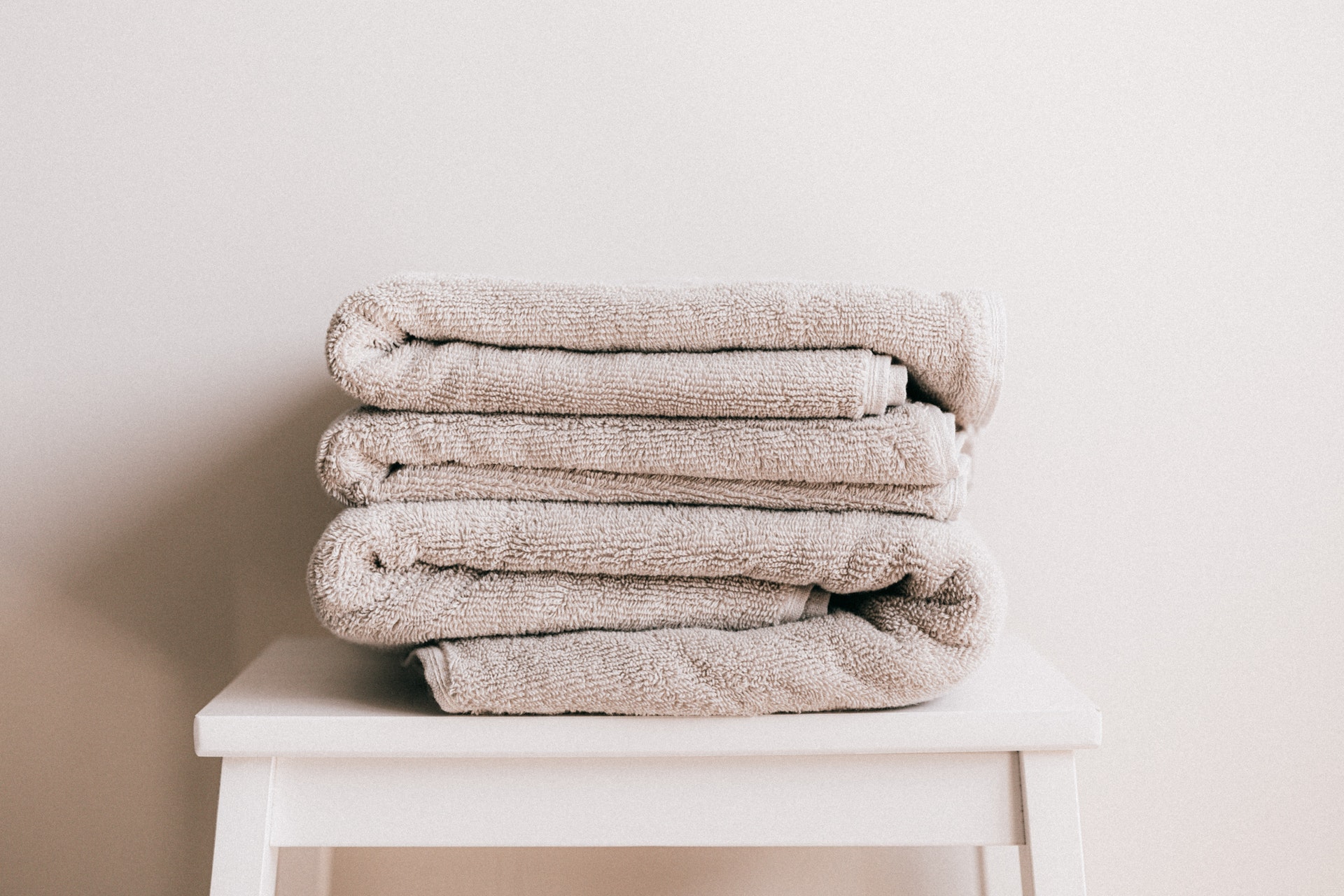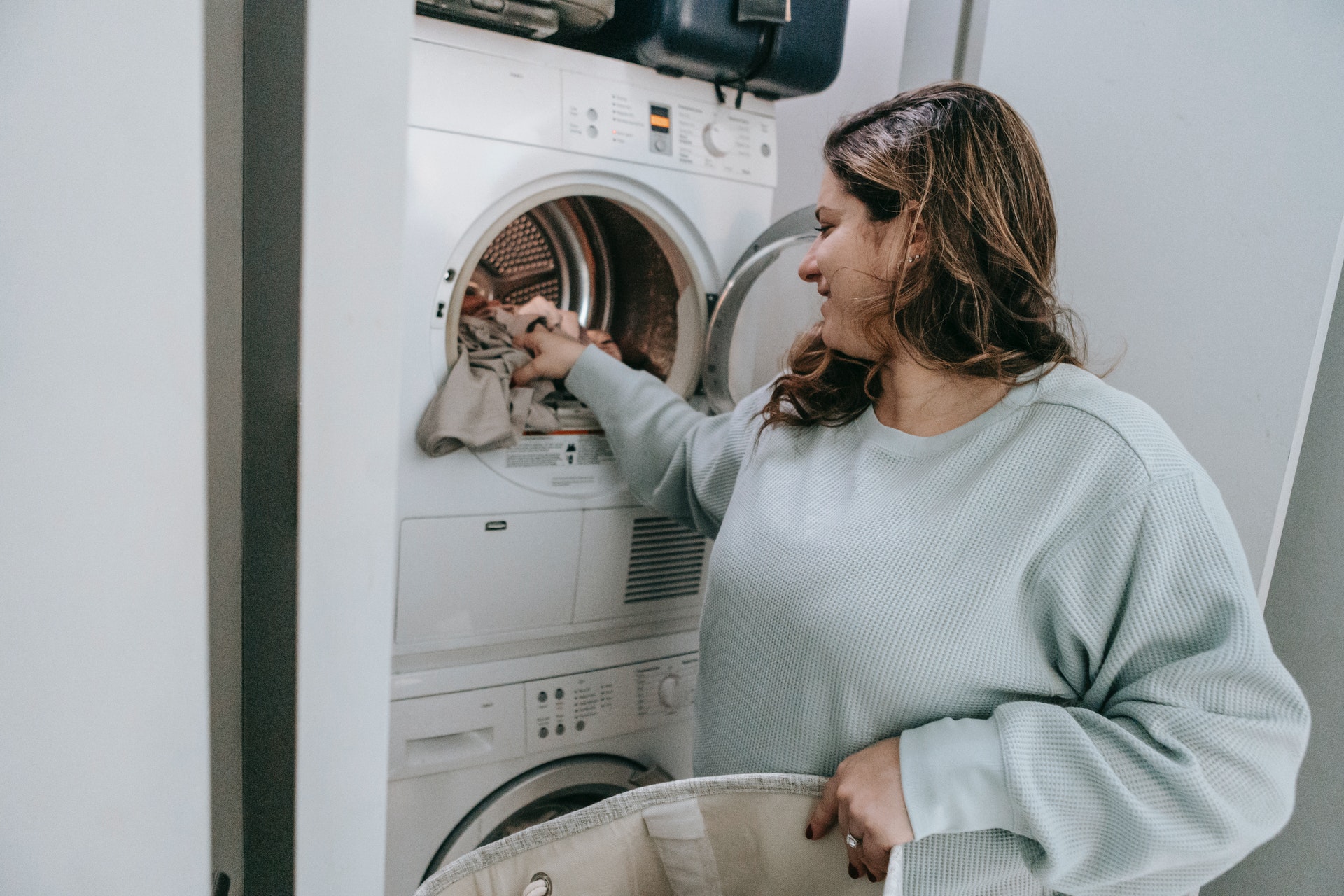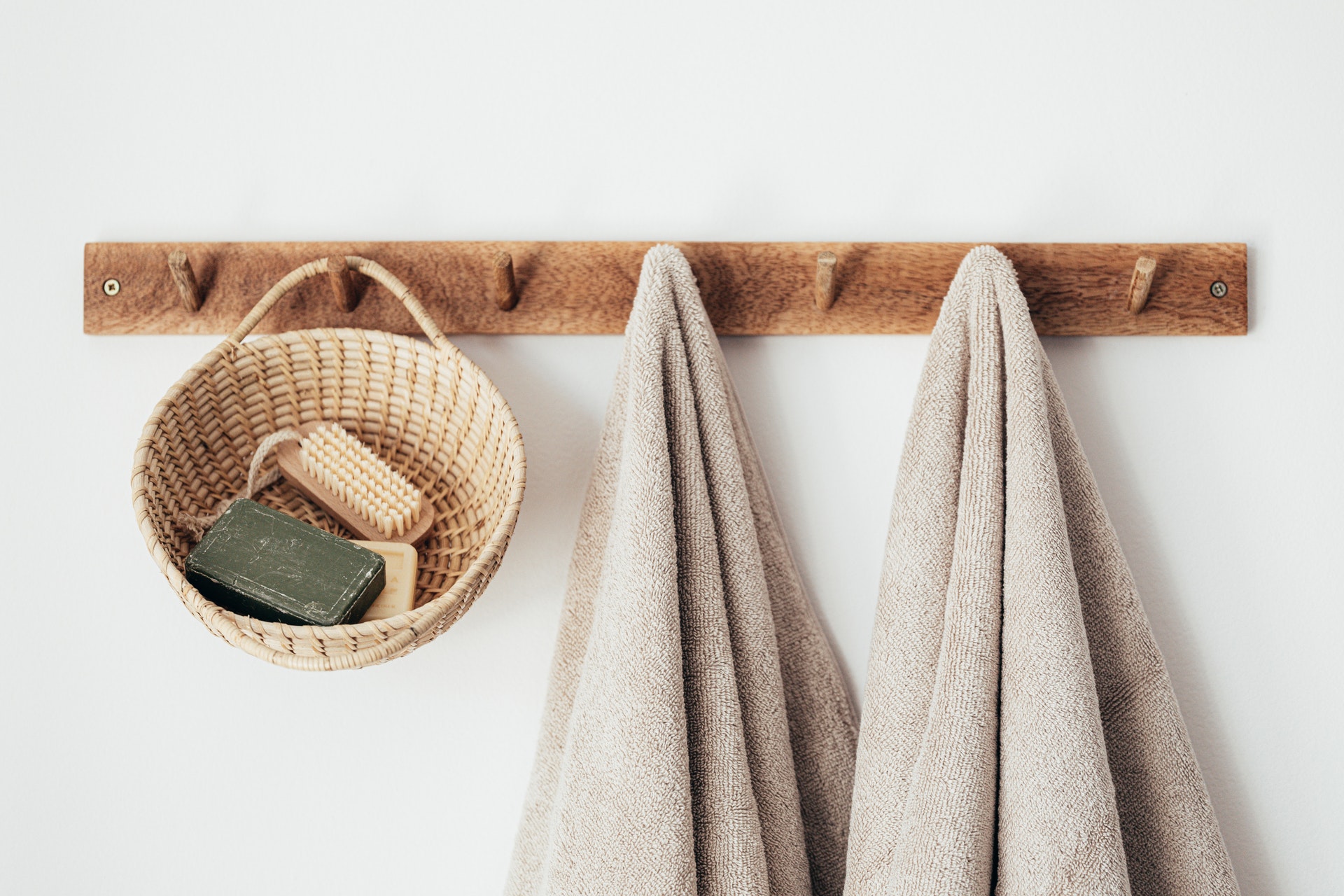
How Do Germs Get on Towels? Die/s Every Minute You Don't Read This Article
Nidhi Parikh • Apr 26, 2022
Did you know that research found nearly 90% of bath towels to have traces of coliform bacteria and 14% to carry E. coli.?
Surprising, isn’t it?
We get straight out of the shower, smelling all good and being clean, and the moment we dry our bodies with these towels, that cleanliness goes right out the window.
Why does this happen? What causes our towels to get dirty so quickly? How do we ensure that we don’t catch diseases and risk our skin getting hampered? In this article, we address all these questions that might be on the top of your mind right now.
How do germs get on towels?
Here are different ways those bacteria and germs get on your towels:
-
Every time you use the towel to dry yourself, your natural skin bacteria gets transferred to the towel. When each inch of our skin has 19 million skin cells and 650 sweat glands, it’s natural that while some dead skin cells may go down the shower drain, some stick on to your towels. These skin cells are food for microbes and it doesn’t take time for bacteria and germs to multiply.
-
Our towels are all moist and damp when we dry ourselves with it. This is the ideal environment for bacteria and germs to multiply as they grow and reproduce the most when they have surfaces with moisture. The longer our towels stay damp, the longer the bacteria, yeast, molds, and viruses stay active.
-
Lights often remain switched off in our bathrooms and it thus becomes a breeding place for disease-causing bacteria. Researchers at University of Oregon found that 12% of bacteria were able to reproduce in dark rooms whereas that percentage dropped down to 6.8% in sunlight.
-
If you don’t wash your hands thoroughly, you risk transferring fecal organisms like coliform bacteria to the towel when you dry your hands on it. Charles Gerba, a microbiologist at Arizona says, “After about two days, if you dry your face on a hand towel, you’re probably getting more E. coli on your face than if you stuck your head in a toilet and flushed it.”
Now that we know how many germs and bacteria lurk on our towels, let’s look at how you can prevent this buildup.
Towel hygiene tips you should follow
-
Dry your towels after every use: We already know that damp towels are a welcome invitation to bacteria and germs. So, after every use, put them in the dryer or hang them in a room where there’s sunlight or proper ventilation to avoid growth of mold and bacteria.
-
Wash towels daily if you have infection or open rashes: If you don’t wash your towel, you risk spreading that infection on other parts of your body.
-
Avoid sharing your towels: Can I just share my towel with my partner? It’s advised not to, especially if your partner has any skin condition such as eczema or warts, or is sick.
-
Use good quality towels: Towels of a cheaper quality may not dry you well and can also hold too many unseen germs. Their fibers may also tend to break faster if you put them in very hot water.
-
Wash new towels before using: Got a new towel? Great! But don’t start using it right away. They’re often coated with silicone to make them look good in the store. These coatings reduce the absorption power of towels and thus laundering them first is a good idea.
Why should you wash your towels?
Dirty towels can spread bacteria, fungi, and viruses. You could possibly get many skin infections or end up with an irritated skin because of it. It is even found that the bacteria responsible for staph infections (MRSA) can spread on towels and linens.
If you have acne-prone skin and you use your towel vigorously, you scratch your skin and these breaks in the surface of your skin give an entryway to bacteria to get in your body and result in even more pimples.
What’s more? Freshly laundered towels work better at absorbing liquid since the towel fibers aren’t matted down and have more air between them.
The best part? Washing your towels get rid of musty odours and there’s a nice fresh scent to them.
How often should you wash towels?
There’s no fixed formula that you need to adhere to before putting that towel in laundry. But it’s recommended to wash your bath towels after using it for 2-3 days.
You can prolong this washing if you’re completely drying your towels after every use. But remember to atleast wash it once a week. If you find your towel is starting to smell, you’ve prolonged the washing for too long.
What factors require frequent washing?
You may need to wash your bath towels frequently in some circumstances:
- If you’re sick
- If the humidity in your house is high, especially during summer and monsoon, when your towels may not dry faster
- If you have sensitive skin or you suffer from skin condition such as eczema
- If you shower at the gym, you might stuff in your damp towel in your bag later which may remain there for hours. These towels may also have soaked some of your sweat and thus might be dirtier than you think.
How to wash towels to keep them clean and fluffy?
Before you start, you must have a super-cool laundry detergent because bacteria can survive normal detergent. So you’ll need a product with activated oxygen bleach. If you don’t have that available, here’s a DIY for you: Mix one cup of vinegar with your normal detergent and make use of hot water. This will remove all the hard water and chemical debris stuck in your towel fibers.
Once you’re ready with this, let’s move on to the detailed steps:
- Always dry your towels before putting it in your laundry hamper.
- Keep colored and white towels separate and if possible, wash your towels separately from the rest of your clothes.
- Don’t overload your machine with too many towels as they’ll not get as much water, detergent, and movement to get clean.
- Add half the amount of detergent you usually use because using too much detergent can cause buildup on your towels and reduce absorption. Skip the fabric softener too as it’s also known to reduce absorption.
- Use hot water for white towels and warm water for colored ones.
- Use a regular cycle for both.
- Once the cycle has finished, take the towels out and shake each of them before putting them in the dryer. This loosens the towel’s loops and makes them dry faster and be fluffy.
- Keep them in medium to low heat in the dryer until they’re dried completely so as to not cause mildew. Also avoid overdrying as this can damage your fabric’s fibers with time.
- Once dried, take them out of the dryer and again give them a shake to make them fluffier before folding or hanging them.
The process is a little different if you’re making use of microfiber towels. Read this guide to know more about that process.
If you feel laundry is too stressful, we relate with you! Add ‘Laundry Wash & Dry’ to your cleaning service in Homero and enjoy a nice and clean home along with all your laundry done.
Also, ensure you’re taking equal care of your washing machine. Read the manual to know how often you should santize your washing machine. You can even run a rinse cycle with just vinegar to kill bacteria in the machine.
How often should you replace your towels?
There’s no rule when it comes to replacing your towels. If you follow regular washing and drying out your towels, your towel may last longer.
But if you notice a weird smell coming from it or feel its absorption power falling down, it’s time for a fresh towel.
Now that you know all about towels and how to keep them clean, let loose your worries about germs and have relaxing showers!
Book your home cleaning and laundry service today by handing it over to professionals who know the best.
Subscribe to our newsletter
And save $25 on your first booking!








